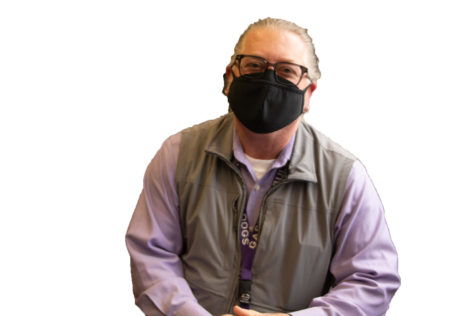Where’s my Counselor?
A peek into the offices of Garfield counseling.
By definition, a school guidance counselor is a person who gives advice about school, college, and academics. But what does that mean to the Garfield community specifically?
Daniel Lee and Kenneth Courtney, Garfield’s tenth to twelfth grade counselors, serve the community in ways that extend beyond sitting behind a desk and answering emails.
“One of the things I really like about my job is that no two days [are the same],” Lee said.
A counselor’s day to day routine varies greatly depending on the time of year. In the fall, when the office is overrun by frantic seniors applying to colleges, counselors work on sending transcripts to colleges and filling out letters of recommendation. During this time, counselors also meet with seniors to discuss their future.
 “That’s a thirty minute meeting where we talk about their graduation requirements. I give them a copy of their academic history with what they still need for graduation and I give them a transcript and we talk about the college application process and the plans that they have for after high school,” Courtney said.
“That’s a thirty minute meeting where we talk about their graduation requirements. I give them a copy of their academic history with what they still need for graduation and I give them a transcript and we talk about the college application process and the plans that they have for after high school,” Courtney said.
Junior meetings take place in the spring. Students will set appointments with their counselor, where they will talk about everything from the classes they’ll be taking next year to their plans for the future, whether that be college, trade school, or entering the workforce.
A common problem between students and counselors appears to be the timeliness of communication. Counselors deal with over a hundred emails on a busy day, and thirty to forty emails on a slow day, in addition to their in-person meetings with students, staff, and parents. If students have not heard back from a counselor within twenty-four to seventy-two hours, Lee suggests going to administrative staff for assistance.
 “Email the counselor again to remind them. If you still don’t get a response within twenty-four hours of that reminder email, I would say you should be contacting either the head counselor who is Ms. Alston, or one of the administrators, Ms. Barnes, Ms. Carr, or Ms. Acton. They can help facilitate a response in a quicker way,” Lee said.
“Email the counselor again to remind them. If you still don’t get a response within twenty-four hours of that reminder email, I would say you should be contacting either the head counselor who is Ms. Alston, or one of the administrators, Ms. Barnes, Ms. Carr, or Ms. Acton. They can help facilitate a response in a quicker way,” Lee said.
In addition to providing academic support, counselors are able to assist with filling out work authorization forms, finding community service opportunities, and help students get involved in community programs that align with their interests. Unlike a school psychologist, counselors do not use mental health screenings to assist students and families.
“A school counselor is someone who…[does not] use…diagnostic assessments, so we’re not mental health counselors, but we are trained in working with students and supporting their social emotional needs,” Lee said.
Counselors act as mediators for students who need extra support. If a student is having trouble in their home life, or their school life in a way that is hindering their academic success, they can meet with their counselor for support and get back on track. They can connect students to resources like tutoring services, and help prepare for a future beyond Garfield. Counselors are invaluable to the Garfield community, and they are doing their best to see to the demands of every student.
Photography by Michelle Tong




